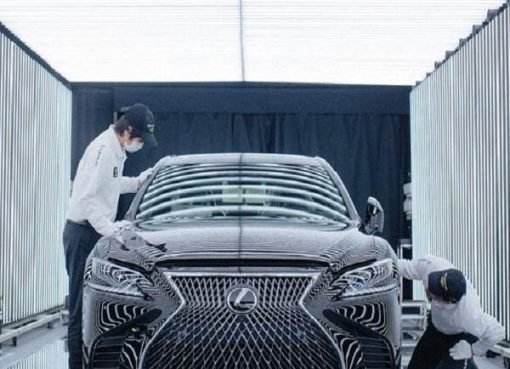China have submitted a paper to the United Nations calling for global regulations on the military use of artificial intelligence (A.I.).
The timing is suspicious, coming after a string of U.S. intelligence reports and academic papers warning that China might be outspending the American military on A.I. applications.
China’s state-run Global Times described Beijing’s submission to the U.N. as the sum of all fears about A.I., up to and including the science-fiction threat of self-aware Terminators deciding to get rid of the human race:
In addition to AI functions on tactical platforms like warplanes and warships, there could be strategic uses of AI to assist military leaders in making crucial decisions based on big data in real time that could not be processed by humans, the anonymous expert said.
However, this means military AI is a double-edged sword that could help safeguard peace when used properly, but also sabotage it when used with evil intentions, analysts said.
Many works of science fiction have depicted scenarios where military AI does not function as intended or even gains self-awareness, bringing a series of ethical problems and even disasters to humankind. This is not impossible, now that technology is developing so fast, observers pointed out.
China’s position paper, and the Global Times’ lengthy account of it, sounds like the work product of a few dozen staffers ordered to quickly assemble a list of every fear expressed by every other country on Earth.
“China called on countries that develop and apply A.I. in the military field to act in a prudent and responsible manner, refrain from seeking absolute military advantage, and not use AI as a tool to start a war or pursue hegemony,” the Global Times pontificated, giving the game away by using the word “hegemony,” which is Chinese Communist Party (CCP) shorthand for “everything the United States does.”
China demanded applause for its “global responsibility” in demanding U.N. regulatory action, even though its primary recommendation – keeping human commanders in the command loop of increasingly sophisticated autonomous weapon systems – has been advocated by the United States and NATO for many years.
Long before humanity has to worry about self-aware genocidal killing machines, the great concern of A.I. warfare – or “hyperwar,” a concept that blends cyberwar and physical weapons controlled by computers – is that everything will happen so fast that human commanders could lose control of the battle.
Half a decade ago, NATO published reports containing the concern spotlighted by the Global Times about a hyperwar arms race, where fully-human armies are simply incapable of matching the speed of computers for analyzing and responding to battlefield conditions. NATO’s fear was that every nation will feel obliged to develop fast-acting autonomous weapon systems, which could end up fighting each other and escalating a conflict faster than human commanders or diplomats could de-escalate it.
In short, there appears to be nothing new in China’s position paper, and it lands with much fanfare from Chinese state media at the precise moment Western analysts are worried about China recklessly leaping forward with dangerous A.I. military applications.
The U.S. Defense Department’s (DoD) 2021 report on Chinese military power, released in early November, warned that China’s mad dash for a dominant position in “mechanized, informatized, and intellgentized” weapons could be a greater threat than its rapidly growing nuclear arsenal.
“Intellgentized” warfare includes everything from swarms of A.I.-controlled drones to information war and biological weapons – the latter being far more devastating to armies that rely on human soldiers and decision-makers, rather than A.I.
The DoD report on China’s military mentioned A.I. twenty times, warning that China is surging ahead in both spending on artificial intelligence research and deployable systems. Researchers warned China pulled ahead so quickly because it has ready access to American technology and capital, while China’s own technological developments – achieved with few of the ethical concerns that slow Western scientists – are closely-guarded secrets.
An October report from the Center for Security and Emerging Technology (CSET) at Georgetown University reached similar conclusions, warning the Chinese People’s Liberation Army (PLA) is approaching parity with the U.S. on A.I., or might even have pulled ahead.
“Specifically, we find the PLA is buying A.I. systems designed to identify undersea vehicles, wargame Taiwan operations, track U.S. navy ships, and deploy electronic countermeasures, among other tasks,” CSET analyst Ryan Fedasiuk said.
“We find that China’s military-civil fusion development strategy is paying real dividends. Of the 273 AI equipment suppliers in our data set, 60 per cent are private companies. The overwhelming majority are quite small, established only in the last 10 years,” Fedasiuk added.
From this perspective, China’s enthusiasm for global A.I. regulations could be an effort to divert attention from just how much dangerous technology Beijing already commands – or an effort to erect regulatory barriers that will keep other nations from catching up to China’s lead
Source: Breibart










